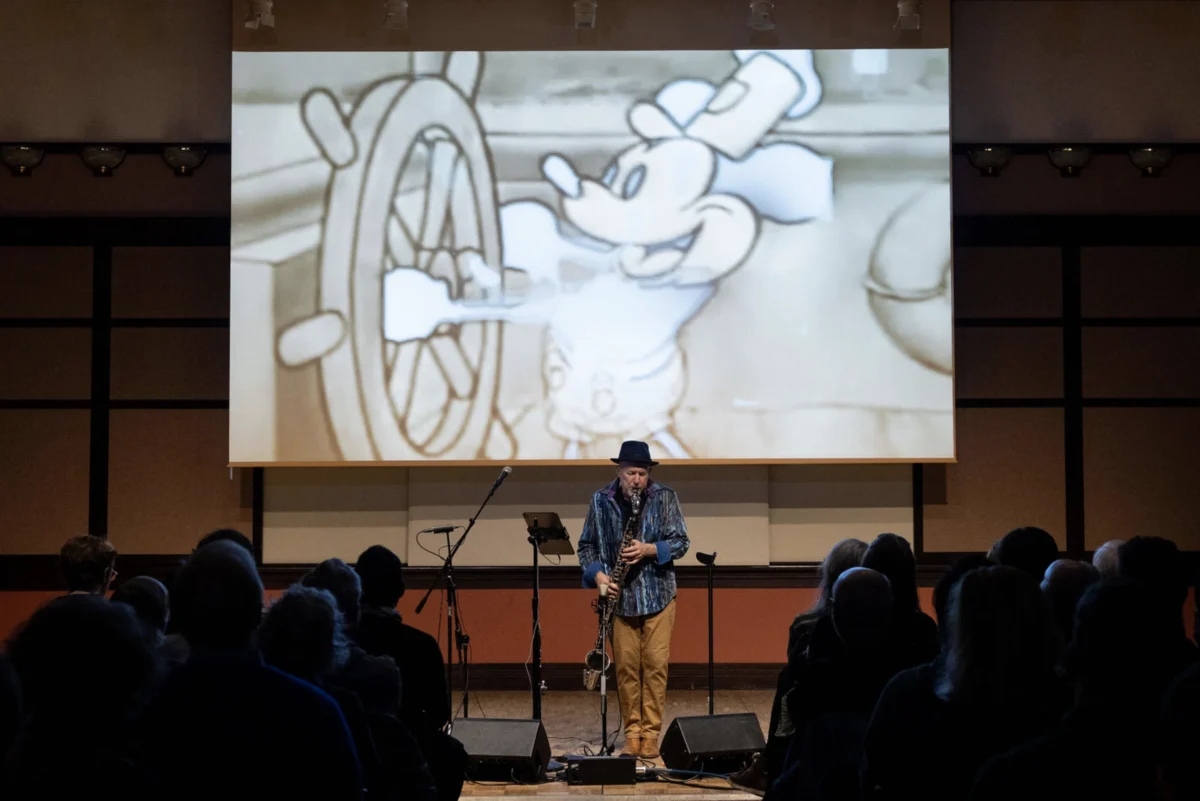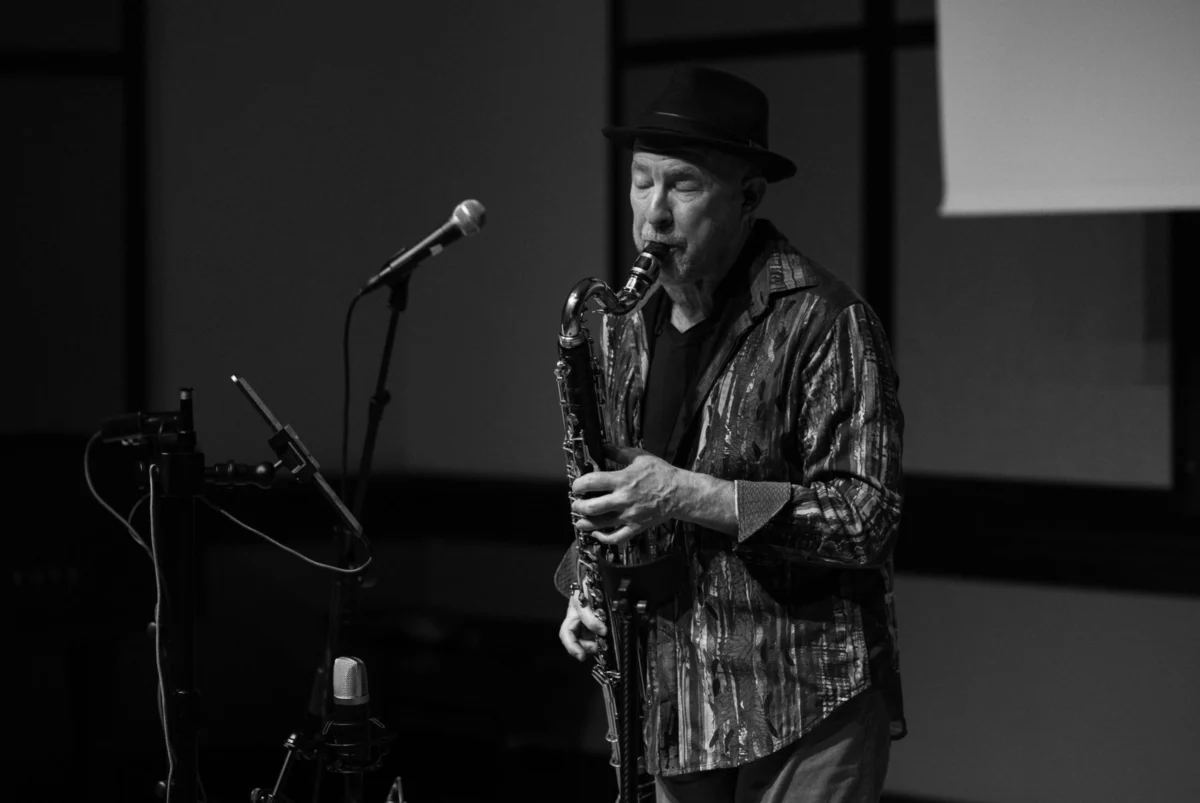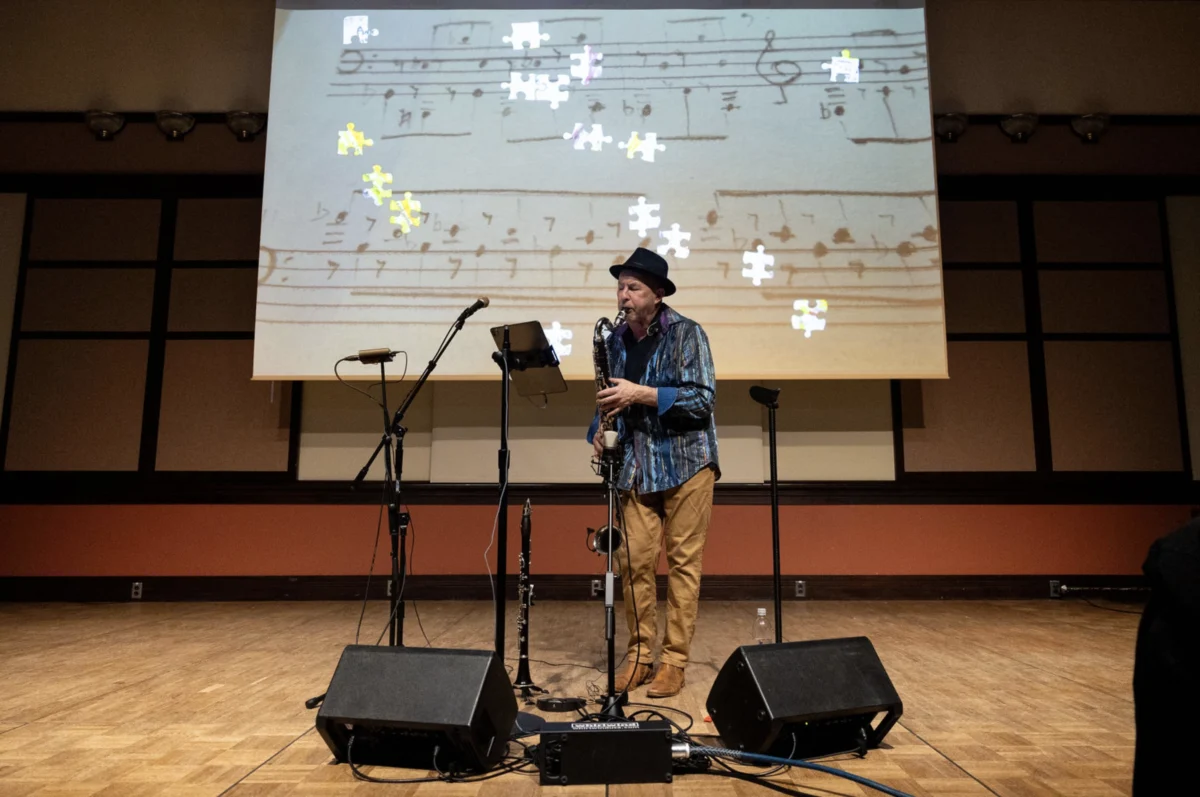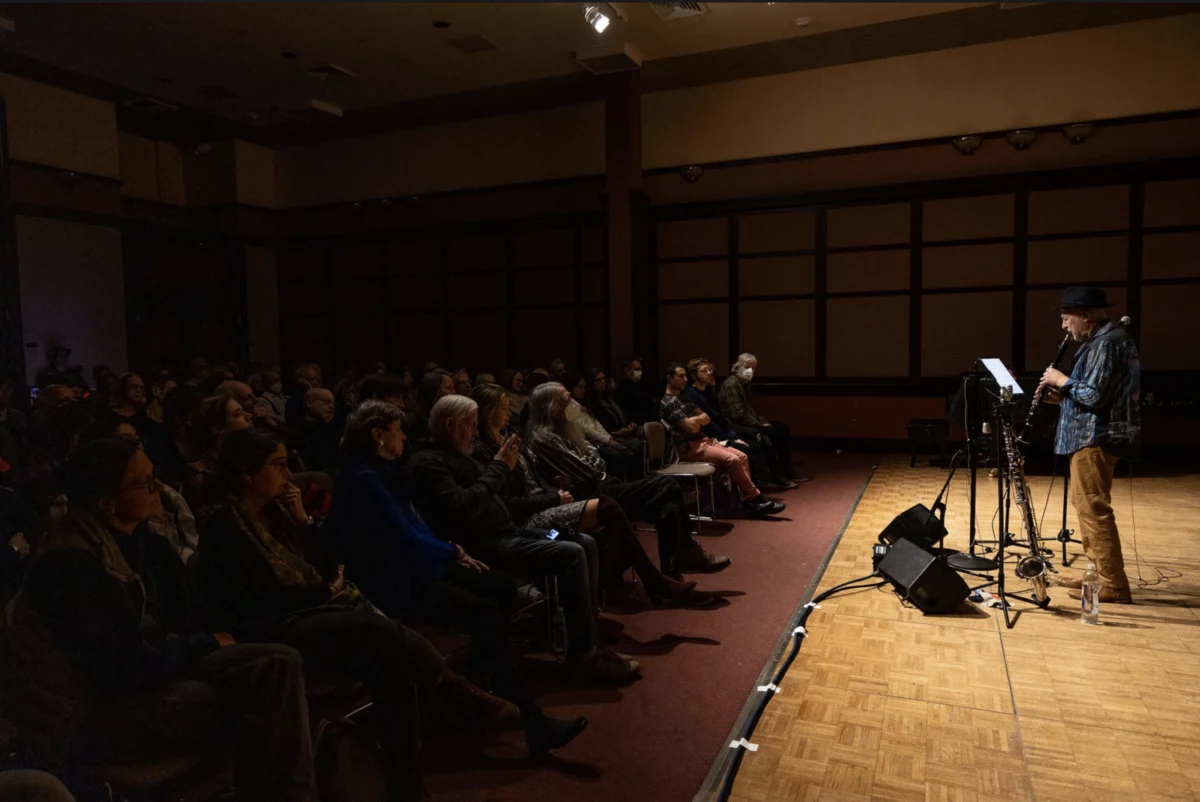Celebrating the connections between minimalism and pop with the clarinet
In his recent concert, Evan Ziporyn Solo: Moondog, Riley, Glass, the composer and clarinetist premiered works by three major figures in American minimalism, while also performing arrangements of pop songs from his 2022 album Pop Channel. “These were composers on my bucket list,” says the Kenan Sahin Distinguished Professor of Music, who has been performing solo concerts at MIT for more than thirty years. Blurring the lines between the avant-garde and the mainstream, the composer and the performer, the sonic and the visual, the concert embodied Ziporyn’s unique aesthetic sensibility.
Philip Glass composed the polyphonic Best Out of Three in 1968, withdrawing it after a few failed performances because of its technical demands on the players. When the piece was discovered in the composer’s archives in 2021, Ziporyn used multitrack recording to make a more playable version of the piece, giving it its first public performance in over 50 years. Further rifling through the minimalist canon, Ziporyn performed a new version of Symphonique #6 (“Good for Goodie”), the composer Moondog’s homage to “King of Swing” clarinetist Benny Goodman. With a cult following in New York’s avant-garde music scene in the 1940s and 50s, Moondog’s fans included Philip Glass and Steve Reich. Moondog, who was blind, composed his pieces line-by-line using Braille scores, which were projected during the concert in an accompanying video by Christine Southworth.

Ziporyn also performed Ki (2023) by experimental legend Terry Riley, who composed the pieces especially for him. From his home in Japan, Riley sent Ziporyn colorful handmade scores, combining graphic notation with images (one prominently features a picture of Riley’s bearded face, a third eye beaming from the forehead.) Like the composer’s iconic In C, the graphic scores lent themselves to creative interpretation, offering a greater opportunity for collaboration between composer and performer. These scores were then translated into a video, also by Southworth. “The video reflects visually what I was doing musically. It gets folded and unfolded, turned into origami. We made a jigsaw puzzle out of one of the pages and assembled it,” says Ziporyn, “As you watch, the score unveils itself for you. And the process unveils itself as the music unfolds.”
In Pop Channel, Ziporyn reworks the songs of popular musicians such as Joni Mitchell and Jimi Hendrix for the clarinet. “Channel” refers to both meanings of the word–the band of frequencies used in mass broadcasting but also the work of the spirit medium–as Ziporyn communes with the music that has shaped the American musical landscape over the last fifty years.

In a culture obsessed with virality, says Ziporyn, “contemporary music as high art is running on fumes.” He knows his music will never reach the massive audiences commanded by pop stars like Beyonce or Taylor Swift, but this knowledge, he says, has been strangely liberating: allowing him to create exactly the kind of music he wants to make. And what he wanted to make, ironically, were arrangements that focused on the pop music that has played such a large part in his life. From Steely Dan to Earth Wind & Fire, these are the well-known melodies and lyrics that compose so much of our inner worlds. “Whether it’s coming from Bob Dylan or Leonard Cohen, it’s the music that permeates your life.”
Through these arrangements, Ziporyn draws attention to the fluid border between pop and classical music, even as the genres might appear worlds apart. Even 14th-century composers, Ziporyn reminds us, would smuggle troubadour songs into church music. The popular German band Kraftwerk had begun as an experimental electronic group (“they kept the electronic mystique and just got rid of the weird, ugly parts,” Ziporyn says.) The Who made Baba O’Reilly, which was directly inspired by Terry Riley.

Minimalism and pop music, Ziporyn says, have always shared a common grammar. “You can play the Joni Mitchell tune and a contemporaneous Philip Glass piece, and there’s actually more connection than just the fact that they happen to be composed at about the same time,” he says, “There’s always been a porous, molecular relationship between pop music and high-end culture.”
The solo concert embodies the eclectic, collaborative ethos that has characterized the MIT Sounding series since its inception over a decade ago. As a composer, musician, educator, and curator, Ziporyn has long blended different styles and genres to critical acclaim, while also celebrating the work of other musicians. When MIT Sounding first began in 2012, this type of musical programming–bringing together pop, classical, experimental and global music–had not yet saturated the cultural scene at MIT and the surrounding Boston area, but now it’s happening all over town.
MIT Sounding, with Ziporyn at the helm, has always existed in the exhilarating, undefinable space between worlds, defying any easy categorization. In this latest concert, Ziporyn says, “I’m inhabiting a space, which I feel is most comfortable for me, as a creative musician who’s not purely a composer, not purely an interpreter, not purely an improviser, not purely a reader, but just somewhere in between.”
Written by Anya Ventura
Editorial direction by Leah Talatinian

